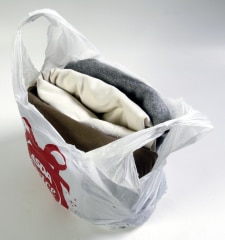A code which aims to address growing concern over bogus and misleading door-to-door textile recycling collections by setting out best practice for the charities and commercial companies involved in running them has been launched today (March 30).
The revised House-to-House Collections Code of Fundraising Practice has been developed by the Institute of Fundraising (IFR) with input from a range of bodies and companies, among them the Textile Recycling Association (TRA).

It represents the first time textile recycling collections have been brought under the auspices of the code, and comes as the issue of bogus clothing collections is being addressed at a ministerial level, with civil society minister Nick Hurd holding a round-table meeting on the subject in January 2011 (see letsrecycle.com story).
The revised Code aims to counter bad practice and bogus collectors and raise public trust and confidence in door-to-door collections by setting out exactly what the highest standards for collections are.
As well as providing specific and detailed guidance for different types of door-to-door collections, it is accompanied by guidance that aims to explain different parties involvements in collections, as well as information around bogus collections and how to avoid giving to them.
Alistair McLean, chief executive of the body set up to police the Institutes codes, the Fundraising Standards Board, highlighted the particular importance of the code for charities.
Clothing collections have become a crucial source of income for so many UK charities and it is essential that best practice is established, he said.
This new Code will guide not only fundraisers and suppliers, but help the public identify bogus collectors from genuine ones, giving them confidence to keep on donating both cash and goods.
Working party
The revision was undertaken by a working party, which included the TRA among its members, while it was also published for consultation a process which received 44 responses, the most ever for an Institute consultation.
According to the IFR, involving representatives of all parties involved in running door-to-door collections will make it more likely that best practice standards will be adhered to, regardless of who is running the collection.
The chair of the working party, Kidney Research UKs director of marketing Peter Storey, said: We are delighted to launch this new Code, which has achieved consensus within the wider fundraising sector around how to conduct house-to-house collections.
At a time when clothes collections were getting a difficult press, and this fundraising technique was under threat, the sector has come together to agree the highest standards.
He added: By working together as a sector we are now in a stronger position to counter bad practice and bogus collectors whilst at the same time enhancing public trust and confidence in this extremely valuable form of fundraising.
TRA
Welcoming the launch of the revised code,Alan Wheeler, the TRAs National Liaison Manager, said: I am delighted that this revised Code of Practice has finally come to fruition, and more importantly it has been fully endorsed by the key stakeholders associated with it.
“It is vital that the general public on whom we rely, can now be assured that door to door collectors that sign up to the code are bona fide, well run, and can raise substantial sums, which in turn benefit all legitimate charities that run such collections.











Subscribe for free